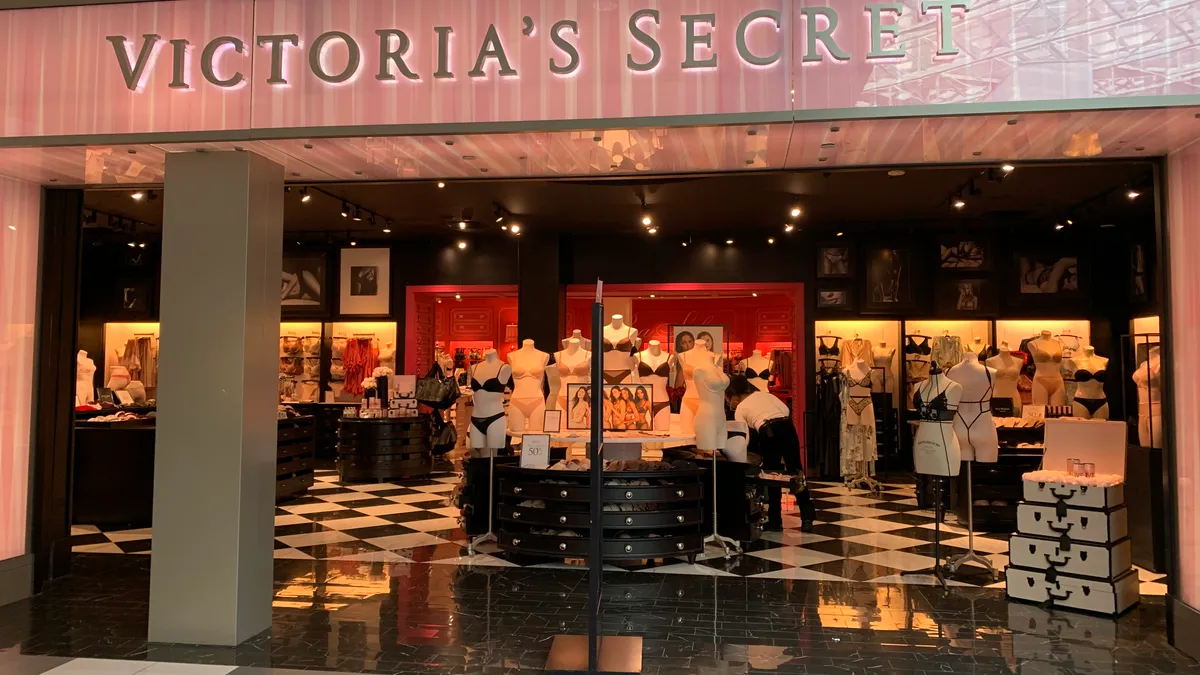Dive Brief:
-
Retail giant L Brands on Thursday announced major moves within its executive ranks, with CFO Stuart Burgdoerfer planning to retire in August, and Martin Waters, (who since November has led its lingerie business), taking over as Victoria's Secret CEO. Burgdoerfer was serving in that role in the interim.
-
Burgdoerfer has been at the Columbus, Ohio-based company for two decades, serving as CFO for the past 14, according to the company. L Brands said it has begun both an internal and external search for his successor.
-
Burgdoerfer has been instrumental in the effort to "drastically improve the business the past year." That includes shifting investor perception of Victoria's Secret, from a low-single-digit billion dollar liability pre-COVID, to a low- to middle-single-digit billion dollar asset now, BMO Capital Markets Managing Director Simeon Siegel said in a client note Thursday.
Dive Insight:
Burgdoerfer, a former finance leader at Pizza Hut and The Home Depot, “has been an exceptional CFO for the last 14 years, and has built an extremely knowledgeable and talented senior finance team," L Brands CEO Andrew Meslow said in a statement.
Thanks to strong January results, L Brands also raised its fourth quarter guidance, saying it now expects comparable sales to rise 10% — reflecting a 22% increase at Bath & Body Works and 3% decrease at Victoria's Secret.
Neither these executive shifts nor the improving picture at Victoria's Secret will deter L Brands from spinning off or selling its the lingerie brand. As it has for months now, the company on Thursday again reiterated its board and executive commitment to the process, adding that Burgdoerfer will stick around to see it completed.
"At its January meeting, the Board was fully updated by its financial advisors, Goldman Sachs and JPMorgan, and the company is currently targeting August 2021 to complete the separation," the company said in its release. "All options, including a spin-off of the Victoria's Secret business into a public company or a private sale of the business, are being evaluated."
The company may feel compelled to state its dedication to the move because recent improvements at Victoria's Secret, as welcome as they are, could complicate it somewhat, some analysts say.
The rationale for a spinoff, previously touted by activist investors and embraced by executives for the last year, is that the Bath & Body Works personal care unit has consistently outperformed the lingerie unit.
A deal forged a year ago for Sycamore Partners to take a majority stake in Victoria's Secret fell through, with the private equity firm citing the pandemic as a major factor in backing out.
"As we've been noting, we believe the stronger VS gets, the more difficult a sale will become and a spin may prove the way to go," Siegel said.
The rising popularity of forging deals with special purpose acquisition companies, which creates a backdoor to an initial public offering, could make way for "a potential wildcard acquirer," he also said.
Without much change in merchandising or marketing, despite changing consumer preferences and rising competition, Victoria's Secret for years resorted to heavy promotions in an attempt to keep a grip on its share. More recently, however, it's scaled back the top line in favor of higher prices, a tactic Siegel has advocated for.
It's worked. In the third quarter, the lingerie business emerged somewhat from the shadow cast by the Bath & Body Works chain. While Victoria's Secret sales fell 14.2%, comps there including e-commerce rose 4%. And the company swung into the black, with gross margin expanding 870 basis points to 44.5% of sales.
















